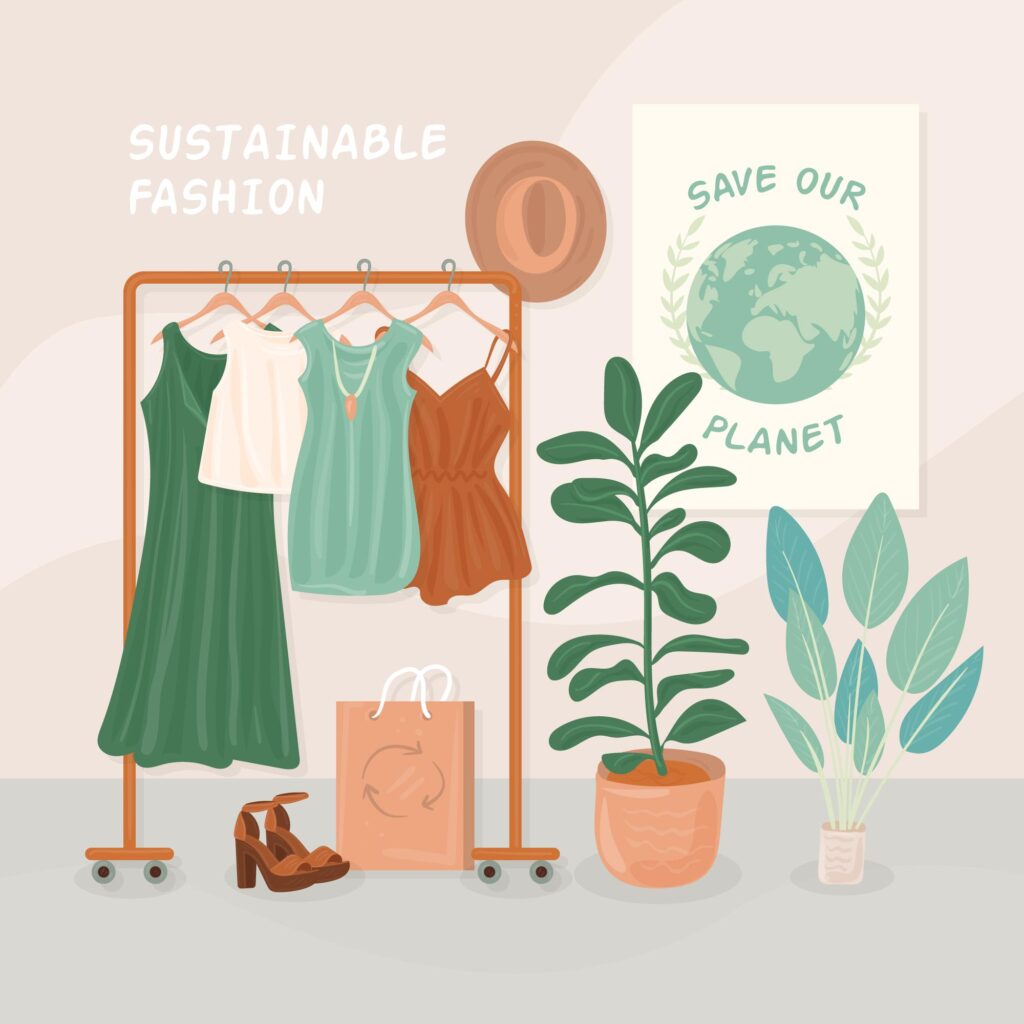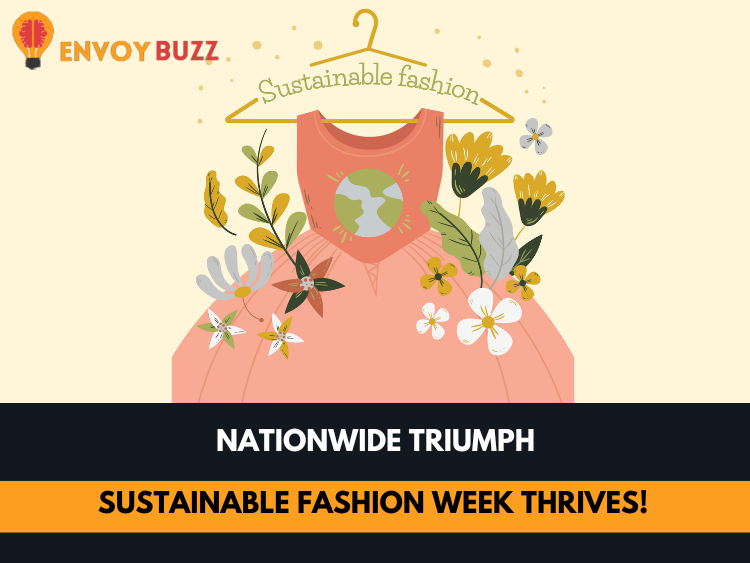In a groundbreaking celebration of eco-conscious style, Sustainable Fashion Week has left an indelible mark on the fashion landscape, establishing itself as a beacon of change and a catalyst for conscious consumerism. The resounding success of its events, spanning from coast to coast, serves as a testament to the growing influence of sustainability in the fashion industry.
Sustainable Fashion Week is “embracing the tide of public sentiment,” drawing hundreds of participants to events focused on transforming wardrobe habits for the greater good.
From September 25 to October 8, the exhibition will offer a variety of runway events, seminars, and masterclasses on upstyling, clothes swaps, and repairs in the UK and abroad.

Amelia Twine of Bristol founded the event in 2020, and this is the first time it has travelled beyond the city to the US, Papua New Guinea, and India, in addition to eight UK towns and cities, from Bradford and Manchester to Frome and Brighton.
More than 600 people had come by the afternoon of the inaugural event, according to organizers of the Brighton hub, who declared it to be “a massive success” on Saturday.
Director of the community interest group Sew Fabulous and a co-organizer Susie Deadman said: “When we started (Sew Fabulous) ten years ago, we were fairly unusual in our approach; not many people were talking about sustainability. Ten years on and we have watched it grow. In terms of Sustainable Fashion Week we are riding the wave now of public opinion and we all want to change it.“
The ReWear Revolution, this year’s theme, strives to upend the current quo and demonstrate what is possible on the High Street.
Hayley Franco, a co-organizer from the Brighton Peace and Environment Centre, added: “The whole point of this event is to teach the community the tools they need to extend the lifecycle of clothes they already own, and change their perspective towards clothes and how we wear them.”
Concern over cost is one of the obstacles, according to founder Ms. Twine, that prevents people from acting more sustainably. However, recycled clothing is both more sustainable and less expensive.
She said: “This is about giving a platform for those taking action on how we consume fashion. It reconnects people with how clothes are made, reconnects them with their community and de-stigmatises second-hand or hand-me-downs. We want to give all those easy entry points into sustainable fashion equal airtime, so that nobody is excluded from the narrative.”
The clothing you currently own is the “most sustainable” you can wear, Ms. Franco and Ms. Deadman emphasized, and clothing swaps and repairs are accessible to everyone.
Ms. Twine, who previously founded an online sustainable women’s fashion retailer, came to the realization that altering consumer behavior is more important than modifying the product’s sustainability.
Mrs. Twine said: “Fashion is now recognized as something you consume that has a serious impact on the environment,”
She further said: “The British Fashion Council has said that we have enough clothing on the planet to dress the next six generations. We don’t see reducing consumption of clothes as a loss. We want to challenge that thinking and focus on the abundance of opportunities. We want to make sure people discovering a fabulous second-hand item, or repairing or remodelling one of their existing pieces, enjoy that same rush they get when they buy something new.”
For more news on sustainability visit Envoybuzz.

